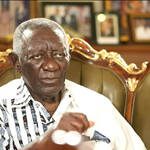Haruna Iddrisu calls for proportional representation to end ‘Winner-Takes-All’ Politics
Former Minority Leader and Member of Parliament for Tamale South, Haruna Iddrisu, has called for the introduction of proportional representation in Parliament to replace Ghana’s current ‘winner-takes-all’ political system.
He argues that this shift would create a more inclusive constitution, fostering greater political harmony and reducing acrimony within the country’s political landscape.
He made the call at a Ministry of Parliamentary Affairs stakeholders consultation workshop focused on validating the Preliminary Report of the Constitutional Review Consultative Committee (CRCC), which is tasked with reviewing the 1992 Constitution of Ghana.
Ending acrimonious politics
According to Iddrisu, the existing ‘winner-takes-all’ system has contributed significantly to the divisive and often hostile nature of politics in Ghana.
He believes that addressing this issue would help preserve the democratic stability and cohesion the nation currently enjoys.
“If the ‘winner-takes-all’ challenge is properly resolved, it may help keep the beauty and cohesion Ghana is enjoying democratically; hence the country should take a serious look at it,” he said.
A solution for political tensions
Iddrisu proposed adopting a system of proportional representation similar to that of South Africa, which allocates parliamentary seats based on the percentage of votes each party receives.
He believes this approach would reduce political tensions, particularly in the lead-up to the December 7 Presidential and Parliamentary elections.
“This can help solve all the tensions we see leading to the December 7 elections,” Iddrisu noted.
Inclusivity beyond political parties
The MP further highlighted that the current political structure marginalizes many capable Ghanaians who do not align with any political party or share the ideologies of the ruling parties.
He called for a national discussion on the ‘winner-takes-all’ principle in the 1992 Constitution, urging the nation to rethink how political power is distributed.
“There are Ghanaian citizens who may never ever get recognized because they do not align with any political party or share the same ideology,” he lamented.
Avoiding missed opportunities
Iddrisu expressed hope that the ongoing constitutional review would not result in lip service, as he believes happened during the last attempt under the John Evans Atta Mills and John Dramani Mahama administration.
He stressed the importance of seizing this opportunity to make meaningful changes to the 1992 Constitution for the betterment of Ghana’s democratic system.
“We need to agree among ourselves, even if we bring it to a national discussion, what should we do with the ‘winner-takes-all’ principle in the 1992 Constitution,” he concluded.
CRCC’s role in the review process
The committee, chaired by Madam Clara Kasser-Tee, is building on the recommendations of the 2010 Constitutional Review Commission (CRC) and its accompanying White Paper, aiming to identify key provisions in the constitution that require amendment.
In her presentation, Madam Kasser-Tee emphasized that the committee’s objective is to ensure the report reflects Ghana’s current democratic realities and aspirations.
Recommendations on constitutional amendments
The CRCC’s preliminary report advocates that non-entrenched provisions continue to be handled by Parliament, while entrenched provisions should be brought directly to the people for deliberation.
The committee recommends allowing citizens to vote on each provision individually, rather than through a single yes-or-no referendum.
- Tuesday, May 6, 2025 Newspaper Headlines - 6 May 2025
- Mahama unveils Code of Ethics for appointees - 5 May 2025
- No system breach, MoMo is safe, secure- MTN - 5 May 2025




